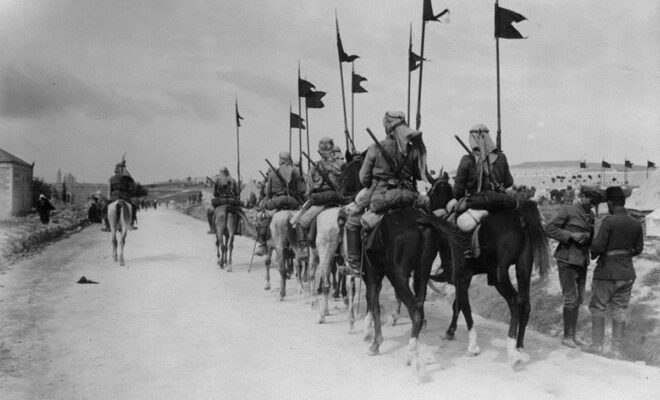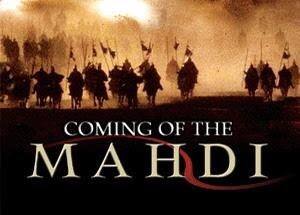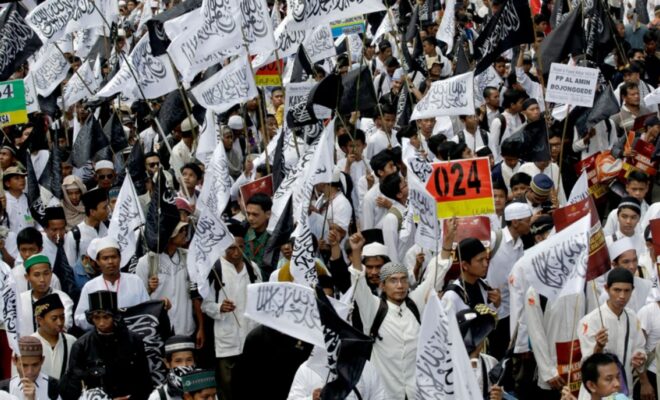The Fall of the Khilafah – A Calamity Demanding Action

We have entered the sacred month of Rajab; a month that has a distinct – and devastating – significance for the Muslim Ummah. Rajab marks the fall of the last Islamic State, i.e., the Khilafah of Bani Uthman (or the Ottoman Caliphate) in 1924.
Following the destruction of the Khilafah about 100 years ago the Muslim Ummah has had to endure calamity after calamity.
From the Zionist Entity’s occupation of Palestine to the artificial division of our lands into puppet states by the Colonialist powers to countless foreign invasions to now severe and widespread social and economic devastation, it is no secret that the Ummah is in extreme distress.
Usually, when a person suffers from some kind of trauma, they will recall the moment it reached its lowest point. Furthermore, when we suffer a personal loss, like that of a loved one, our hearts will be saddened when we think about that day.
Yet, how often do we remember the pain the Ummah suffered in Rajab with the fall of the Khilafah? How many of us can feel the weight this month should have on our hearts because of the loss of the shield to protect us?
Many of us do not experience a deep sense of loss like one would with the loss of a loved one. Why? Our access to knowledge about the Khilafah, especially the fact that it is an Islamic obligation (i.e., fard), is limited. It is either tucked away or tainted with propaganda from the West and their puppet tyrants ruling the Muslim lands.
Khilafah: Our Inheritance from Rasul’Allah (saw)
Allah (swt) ordered Rasul’Allah (saw) to migrate (make hijrah) to Madinah. The Sahaba (ra) signified the Hijrah as the starting point of the Islamic Calendar. The second Khalifah, Umar ibn al-Khattab (ra) was reported as saying, “The Hijrah has separated truth from falsehood, therefore, let it become the Epoch of the Era” (Ibn Hajar al-Asqalani, in Fath al-Bari).
For the Sahaba (ra), the Islamic State in Madinah marked the start of not just an era, but the exact point in history where we cast a dividing line between Haqq (Truth) and Batil (Falsehood).
This was a state that welcomed Muslims for who they were – Muslims! Rasul’Allah (saw) specifically ordered the Muslims residing in Abyssinia to migrate to Madinah, i.e., to their Islamic homeland.
This was a state that upheld the security of both Muslims and Non-Muslim citizens. For example, when a tribe allied with Quraysh (Bani Bakr) attacked a tribe aligned with Madinah (Bani Khuza’ah), Rasul’Allah (saw) sent an army to Makkah. This was when Makkah was conquered and absorbed into the Islamic State.
Right from the beginning of the Islamic State in Madinah, the Ummah began asserting its presence in the world. It was able to start securing the safety of the Muslims and non-Muslims who accepted its authority. Most importantly, the State became the vehicle to carry the mercy of Islam to the rest of humanity!
When Rasul’Allah (saw) died, this leadership was inherited by the Sahaba (ra), who became the Khulafah Rashidun. They carried Islam to Persia, the Middle East, Egypt and beyond. Following the Sahaba (ra), the Khilafah of Bani Ummayah carried Islam across North Africa, Afghanistan, and South Asia. After them, the Khilafah of Bani ‘Abbass further spread Islam in South Asia, Central Asia, and the Caucasus. Finally, the Khilafah of Bani Uthman carried Islam into the Balkans and Europe.
Basically, most of the Muslim lands we know today – and by consequence, most of us in the Ummah – are Muslim because the Khilafah carried Islam to our ancestors. Generations upon generations of Muslims died in the path of Allah (swt) to carry the Haqq to our forefathers. Not only that, but under the Khilafah, our forefathers witnessed Islam in its complete implementation as a practical system of ruling, economics, foreign policy, law, society and much more. It was this holistic experience of the Deen that brought entire nations to Islam.
Yet today, due to the absence of the Khilafah – and the non-implementation of the Deen – our future generations are at risk of living a world totally devoid of Haqq.
Is this the legacy Rasul’Allah (saw) wanted us to leave?
The Rulers in the Muslim Lands are Illegitimate
Allah (swt) said in the Qur’an:
“But nay by your Lord, they will never believe until they make you (O Muhmmad) the Judge between them” [TMQ 4:65]
He (swt) also said:
“Have you not seen then one who claims to believe in what Allah has revealed to you and what was revealed before you; go and seek judgement from the Taghout, whilst they were commanded to disbelieve in it”? [TMQ 4:60]
Imam Malik (rh) narrated: “The Taghout is anything that is worshipped besides Allah”. (Tafseer al-Qurtubi)
Furthermore, As-Sha’bi narrated that a man from among the Hypocrites (Munafiqun) had a dispute with a Jewish man. The Jewish man said, “We should go to the Prophet (saw) for judgement.” The Munafiq said, “Rather we should go to the Kahin (i.e., a witch or idol-worshipping religious figure) from Juhaynah, instead of the Prophet (saw).” The Kahin was labelled the Taghout by Allah (swt) as he was to be a conflicting source of legislation, i.e., other than Islam.
We can see from these ayaat and ahadith that Allah (swt) prohibited the Ummah from implementing laws that do not originate from the Qur’an and the Sunnah. However, as we can see from today’s reality, every Muslim land is drowning under laws that come from disbelief (Kufr). In every case, man erected himself as a legislator besides Allah (swt).
We Do not Owe Today’s Rulers Any Obedience
Some may misuse some ahadith to claim we must obey the existing rulers. However, Islam does not recognize the legitimacy of those who rule by Kufr. The legitimacy of rule is directly and exclusively tied to ruling by the Laws of Allah (swt) – nothing else.
In a hadith narrated by Umm al-Hasan, Rasul’Allah (saw) said:
“If a slave who has been mutilated is made your commander and leads you in accordance with the Book of Allah, listen to him and obey.” [Muslim]
Also, in a hadith narrated by Ubada ibn Samit (ra), Rasul’Allah (saw) said:
“Not to dispute about the People of Authority unless you see evident disbelief (Kufran Buwahan) regarding which you have a proof from Allah.” [Bukhari]
Commenting on this hadith, Qadi Iyad (rh) – relaying from Imam an-Nawawi (rh) said – “…if disbelief appears on the ruler, or he changes the Shariah.”
Is it not apparent the rulers of the Muslim Words have abandoned the Shariah?
The Khilafah is an Obligation
Abdallah ibn Umar (ra) said he heard Allah’s Messenger (saw) say,
“He who throws off obedience will meet Allah on the day of resurrection without possessing any plea, and he who dies without having a ba’yah on his neck will die a death of Jahillyah (pre-islamic ignorance.” [Muslim]
Ibn Khaldoun (rh) said in his Muqadimmah:
“…a contract of obedience, because the one pledging his obedience pledges to his Amir that that he will submit to his obedience in the affairs of the Muslims during times of ease and hardship.”
As for this Bay’ah being pledged to the Khalifah, Imam Shawkani (rh) mentions in Nayl al-Awtar “death of Jahilliyah” means that his situation is like that of those who died from the people of Jahilliyah in misguidance as they did not have an Imam (Khalifah) who they obeyed as they did not have that concept and the meaning of Death of Jahilyyah is not that they die as Disbelievers, but they die in disobedience”.
The Usuli scholar Sa’ad al-Taftazani (rh) said
“The Imamah refers to the General Leadership in the matters of the Deen and Dunya; it is the role of the Khalifah (successor) of the Prophet (saw).”
These evidences show that we are Islamically required to maintain a ba’yah to a Khalifah. However, since we lack the Khilafah, we must restore it to fulfill our obligation of contracting this oath. This stems from the Fiqhi principle, “Whatever leads to an obligation, is an obligation in and of itself.”
Finally, the Ulema – especially among the classical fuqaha’ (whose books today’s scholars study and reference) – all agree upon the obligation of the Khilafah.
Imam al-Nasafi (rrh) said in Aqa’id al-Nasafiyya:
“The Muslims must have an Imam, who carries out the implementation of their ahkam, the maintaining of their hudud, the guarding of their frontiers, the equipping of their armies, the receiving of their alms [zakat], the subjugation of those who rebel, thieves and highway robbers, the establishment of jumu’a and the two ‘Eids, the settlement of disputes which take place amongst people, the receiving of evidence based on legal rights, the facilitation of the marriage of the young men and women who have no guardians, and the distribution of the booty.”
Commenting on Imam al-Nasafi (rrh)’s work, Imam Sa’d al-Din al-Taftazani (rh) said:
“There is (scholarly) consensus on the appointment of an imam being obligatory. The difference of opinion is only on the question of whether the obligation is on Allah or man, and whether is it by textual or rational evidence. The correct position is that it is obligatory upon man by the text, due to his saying (saw), ‘Whosoever dies not knowing the Imam of his time dies the death of jahilliyah’, and because the Ummah (the companions) made the appointing of the Imam the most concerning of important matters after the death of the Prophet (saw) to the extent that they gave it priority over the burial; similarly after the death of every imam, and also because many of the other shari’a obligations depend upon it.” (Sharh al- Aqa’id al-Nasafiyyah, p.353-354)
Rajab: A Time of Reflection and Response
Rajab was a month of calamity for our Ummah. We must use this time to commemorate and reflect upon the loss of the Khilafah.
It is no longer excusable for us to disregard this event and, worse, fail to discuss what had caused it. This is not how we should treat one of the defining legacies of Rasul’Allah (saw), the Sahaba (ra), and generations of Muslims for over 1,300 years.
However, reflecting upon Rajab is only one part of the effort. We must build upon the reflection by also working towards a response.
We are not passive observers. Through Rasul’Allah (saw), Allah (swt) had showed us exactly how to establish the Khilafah, the System of Islam, in a world filled with systems of Kufr (disbelief).
On February 18th, insh’Allah, Hizb ut Tahrir Canada will host an event to showcase why our Ummah must re-establish the Khilafah Rashidah upon the Sunnah of Rasul’Allah (saw).
[optin-monster slug=”ojeevm7fy7kdizabqwet” followrules=”true”]









